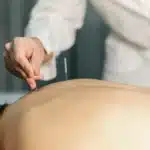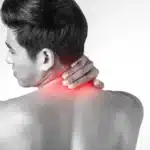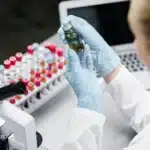
Diabetic peripheral neuropathy, or nerve pain caused by diabetes, can be intense, persistent, and difficult to treat. It can begin with tingling and progress to numbness and pain. However, anyone with diabetes and peripheral neuropathy should be aware of two main points:
“Medications can help alleviate nerve pain, make you more relaxed, and increase your quality of life.
“Keeping your blood sugar under control can prevent the pain from worsening and improve your health.
Start with your blood sugar levels.
Speak to your doctor about controlling your blood sugar levels if you have diabetes and peripheral neuropathy. It’s possible that you’ll need to take insulin as a result.
Ask your doctor if the pain relief will best alleviate the rest of your symptoms after you’ve done everything you can to keep your blood sugar under control, including diet, meal preparation, exercise, and medication.
Over-the-counter (OTC) Pain Relievers
Some people find comfort on the shelves of a drugstore. Any skin creams and over-the-counter pain relievers can be beneficial. It is dependent on the severity of your pain.
Before using any product, consult your doctor for neuropathy treatment. Even over-the-counter medications may cause serious side effects or interfere with other drugs.
Facilitation of Intraneural Communication (INF)
INF is a novel therapy that is non-invasive and does not require medicine. It entails holding and positioning to reintroduce blood to your nerves and alleviate the pain caused by the nerves’ lack of blood supply.
Physical Therapy
Certain types of physical therapy may help diabetic neuropathy heal normally and healthily. Swimming, balance and stability practice, strength training, and mind-body exercises are all low-impact exercises that are highly successful. Avoid high-impact workouts such as hard cardio because they can numb nerves.
When consulting a physical therapist for neuropathy treatment, find someone trustworthy and knowledgeable. This will help you fulfill your unique requirements while avoiding more nerve damage.
Taking Care of Hands and Feet
Treatment for Neuropathy in Feet can be critical. Nerve damage may cause foot sensation. You might not pay attention to the hand and feet health. Check hands and feet regularly for sores, swelling, bruises, or more. You may not find anything serious, but nerve damage may restrict pain signals from reaching the brain. You should avoid sores and cuts to stay away from infections. Regularly wash your hands and feet with lukewarm water. Keep them moisturized. Wear flexible and comfortable shoes and allow space to move the feet. Keep the feet protected. Wear gloves for hand protection.
We’re learning more about how to treat diabetes-related nerve pain. Don’t be afraid to speak to your doctor at Oklahoma Spine & Pain Management
in OKC about the nerve pain you’re experiencing and devise a treatment plan that works for you, including treatments such as Nerve Root Blocks.
**Disclaimer: This content should not be considered medical advice and does not imply a doctor-patient relationship.






